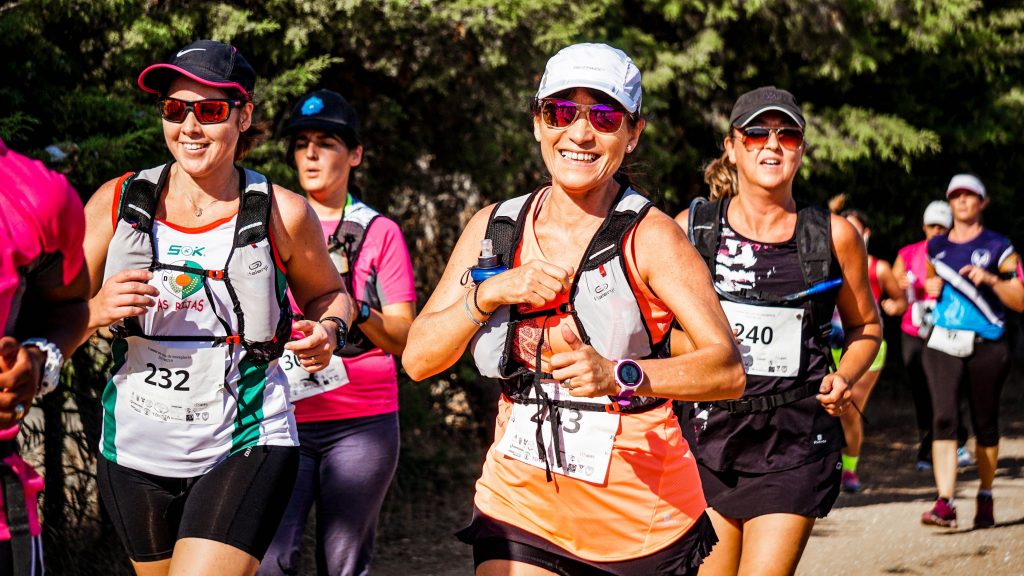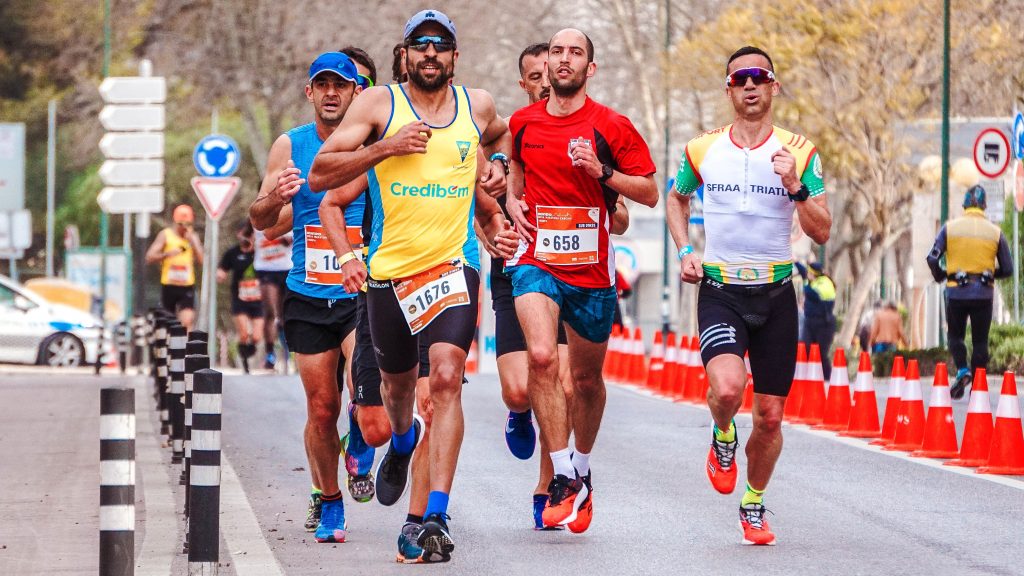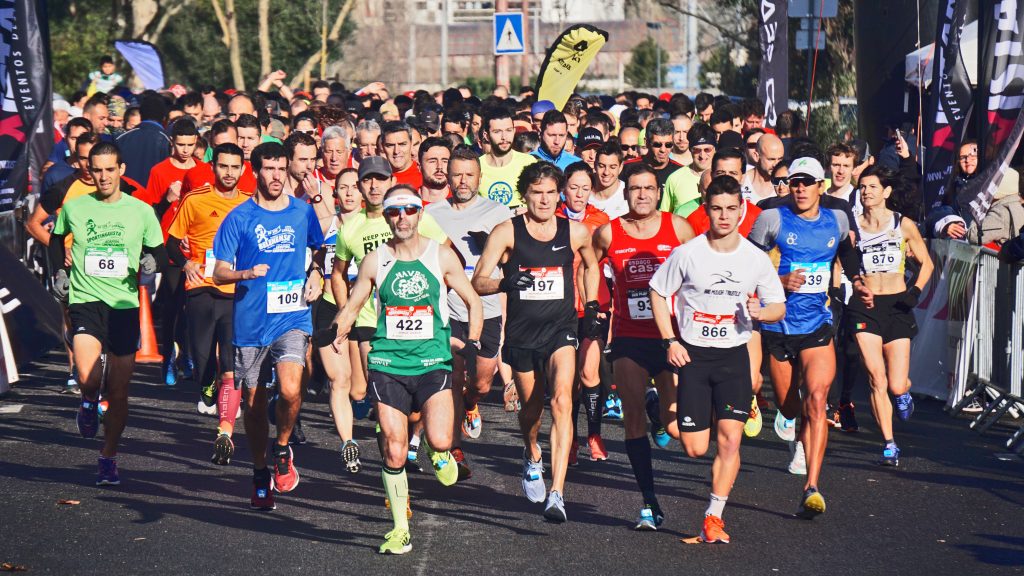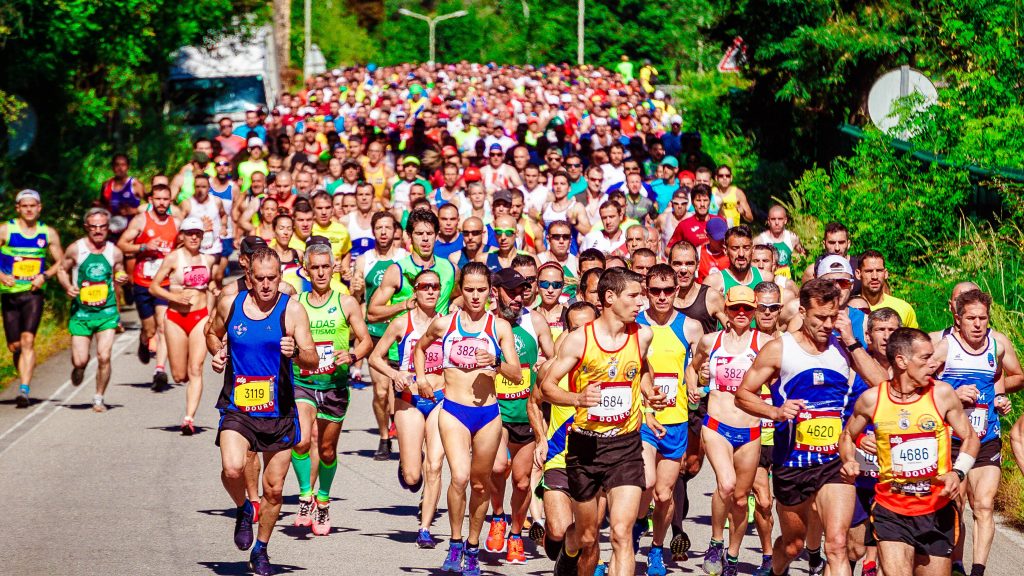It’s not uncommon for runners to constantly want more. A new PR, a longer distance, a more challenging route. But what is a good marathon time?
For the average person, a good marathon time is anything under 4 hours. This is a respectable time that shows you’ve trained hard and are in good shape. However, if you’re a competitive runner, you may be aiming for a time closer to 3 hours.
There are a number of factors that can affect your marathon time, such as the weather on race day and the course itself. But ultimately, it comes down to how much training you’ve put in and how well you pace yourself on race day.
If you’re looking to improve your marathon time, there are a few things you can do. First, make sure you’re following a solid training plan and getting enough rest.
For many of us, running a marathon is the pinnacle of our athletic ambitions. After all, it’s the longest distance you can race, and therefore completing one is seen as a major accomplishment. But what is a good marathon time?
Unfortunately, there’s no simple answer to this question. Marathon times vary widely based on factors like age, gender, and experience level. For example, elite runners typically finish marathons in under 2 hours 30 minutes, while the average finishing time for all runners is closer to 4 hours.
So if you’re wondering what a good marathon time is for you, the best thing to do is to set a personal goal that feels challenging but achievable. And then go out and try your best to reach it!
Whether it’s your first and you’ve just decided to take on this monster of a feat, or you’re a seasoned marathoner, we all want to know, what’s a good marathon time?
An article by Run Repeat states that the addition of 19,614,975 marathon results to 32,335 races worldwide resulted in a growth of 49.43 in the 10 years between 2008 and 2018.
On the basis of that data, we might be able to successfully answer the question of what a good marathon time is and what it takes for one to better Kendall’s PR. We’ll also explore the ins and outs of a marathon, talk about average marathon times, and compete against your PR.
Marathon length: how long is a marathon?

A certified marathon course is 26.21876 miles or 42.195 kilometers, according to the USATF.
The length of a marathon has been standardized since the first modern Olympics in 1896, when the race was set at 24.85 miles (40,000 meters).
Today, all official marathons must be exactly 26.21876 miles (42.195 km) long. This distance is also known as the international standard or Olympic-certified distance.
A marathon is a long-distance run that is 26.2 miles, or 42 kilometers long. This distance was established as the standard in 1921 and remains the same today. A marathon is a test of endurance and stamina, and many people train for months to prepare for the race. The average time to complete a marathon is 4 hours and 30 minutes, but some runners finish in under 2 hours.
The current marathon records

The current men’s world record holder for the marathon is Kenyan Eliud Kipchoge, with an astonishing time of 2 01 39.. This incredible time means that he has broken the previous world record by almost two minutes and forty seconds. Other runners have tried to break this record over the years, but they have all fallen short. The reason why Eliud Kipchoge was able to achieve such a fast time is that he uses a unique training method that involves running on a hard surface as opposed to running on dirt or grass. This method helps him to improve his speed and endurance greatly.
This record was set in Berlin on September 16, 2018. Kenenisa Bekele is a very close second, with a time of 2:01:41, two seconds behind Kipchoge.
On her side, the current world record holder in the marathon is Brigid Kosgei, who holds the record after finishing the distance in 2 hours and 14 minutes in the current running in Chicago, Illinois, on October 13, 2019. The previous record holder, Paula Radcliff, maintained this record for 15 years before Kosgei broke it on October 14.
Why The Average Marathon Time May Be Faster Than You Think – what is a good marathon time

According to Run Repeat’s investigation, the overall average marathon time worldwide is 4:29:53. This figure has remained relatively unchanged for the past decade and a half. However, there are many different types of marathons with varying distances and requirements, so the average time varies greatly depending on which race you’re participating in. For example, the New York City Marathon has an average time of 5 hours and 38 minutes, while the London Marathon has an average time of 4 hours and 23 minutes.
Running a marathon is a challenging feat, but for men and women, the average time to complete the race varies. According to Running Times, the average time for men to run a marathon is 4 hours, 21 minutes, and 33 seconds. This puts them about one minute and two seconds faster than the average woman. The fastest recorded time for a man is 4 hours, 48 minutes, and 45 seconds. Women typically take around five hours to complete the marathon.
Find out what’s a good marathon time for YOU

Running a marathon is an immensely rewarding experience, but it’s not for everyone. For many people, the marathon simply isn’t a feasible distance to run. If you’re interested in running a marathon but don’t think you can do it, there are other distances you can try. In this section, we are moving away from the general averages and looking at what are considered good marathon times. We’ll start with the shortest marathons and work our way up to the longest.
The Boston Marathon is one of the most popular marathons in the world. Runners from all over the globe compete in this race every year. The 2018 Boston Marathon was won by 2:37:57-time that’s almost 4 hours! But what about runners who want to qualify for Boston? The qualifying time for Boston is 3:59:59-that’s almost 5 hours!
While looking at this information, it’s important to consider a few things. A “good marathon time” for one runner can vary greatly from a “good marathon time” for another runner, taking into account a few key factors including a runner’s:
- Current fitness level
- Running experience
- Training Schedule
- Nutritional Regiment
- Age
With that being said, according to Running Level, a good marathon time across all sexes and ages is 3 48 20. While this may seem like an impossible goal to reach, with proper training and a positive mindset, anyone can achieve their personal best time. A good marathon time for men is 3:34:56, and for women, it is 4:08:09.
Find Out the Average Marathon Times By Age and Sex
The Running Level breaks down marathon times by gender and age, including beginner, novice, intermediate, advanced, and elite. We have included the average times by age and sex for intermediate runners. Intermediate runners are faster than 50 percent of runners and have been running regularly for at least two years.
Average Intermediate Marathon Times: Male
| Age Group | Average Intermediate Marathon Time |
| 20-30 | 3:34:56 |
| 31-40 | 3:37:34 |
| 41-50 | 3:51:08 |
| 51-60 | 4:12:14 |
| 61-70 | 4:37:37 |
| 71-80 | 5:15:55 |
| 81-90 | 6:48:48 |
Average Intermediate Marathon Times: Female
| Age Group | Average Intermediate Marathon Time |
| 20-30 | 4:08:41 |
| 31-40 | 4:10:30 |
| 41-50 | 4:26:01 |
| 51-60 | 4:59:10 |
| 61-70 | 5:45:23 |
| 71-80 | 6:52:37 |
| 81-90 | 9:37:35 |
Looking to continually go above and past the world’s average in terms of race times, we runners want to strive to raise our best personal best now that we know where you stand against the superior and just average global race times. Let us review six possible ways how to enhance your marathon time for your next big race.
Six Tips to Take Your Marathon Time from Good to Great
- Include Interval Training In Your Running Program: Interval training will enable you to improve at marathons, whether it’s shorter intervals that maintain your VO2 maximal or extended sets that target your lactate threshold. No matter what kinds of routines you perform, they all have one goal to make you a better runner. These exercises are typical for marathon training, especially at the start of the training cycle. Exercises, such as 800 kilometers, miles, and repetitions, are usually utilized.
- Practice Your Race Pace: To get used to your race pace, you need to know your estimated race pace. To figure out your estimated race pace, you can use a 3k or 5k test, plug in the result to this pace calculator, and there you have your estimated race pace. From the moment you receive this important piece of information, gradually work your marathon time into your long runs. Keep in mind, that slowly adding race pace is the key to avoiding overuse injuries and, more importantly, frustration.
- Nail Down Your Nutrition and Hydration: In accordance with your sports career, make sprinting a habit in your long runs, especially those close to the conclusion of your training.To be able to run a strong and enthusiastic marathon, you need to eat and rehydrate correctly. Create a nutrition plan based on your weight and fluid loss while running, and adhere to it during your long runs.
- Include Strength Training In Your Program: Two sessions of 30-40 minutes a week are sufficient for a number of sessions of strength training at home. The bands used for the resistance, together with a set of adjustable dumbbells, will provide all you need.
- Respect Your Rest Days: Many competitors think that more is better, but all the research suggests that this is not the case. Performance and endurance are directly related to recovery time. We must honor our recovery period for optimizing our runs. Allow your body to recover, relax and sleep the days off. Treat yourself to sports massages, take good care of your skin, consume nutritious food and sleep well. Doing so will enhance your level of preparation for a marathon as you will develop more endurance.
- Follow a Training Plan: Bear in mind that expert guidance is essential to your incredible training. Yes, all of us have heard or read about excellent runners who excel at speed and racing, but they all require planned training and guidance. A suitable training program is indispensable so you don’t push yourself too hard and become injured. It will ensure you emphasize the right kind of training, including speedwork, long runs, marathon-specific training, recovery runs, cross-training, and strengthening workout sessions.
Final Thoughts
In conclusion, if you are looking to run a good marathon time, start with a pace that feels comfortable for you and gradually increase your speed over the course of the race. Be patient and take it one race at a time!

